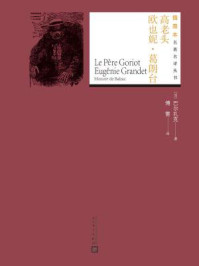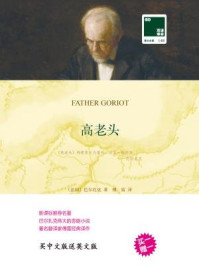




Trumpet March.
Enter the KING and QUEEN, preceded by POLONIUS, HAMLET,
LAERTES, [23] Lords, Ladies, and Attendants.
King. (R.C.) Though yet of Hamlet our dear brother's death
The memory be green; [24] and that it us befitted
To bear our hearts in grief, and our whole kingdom
To be contracted in one brow of woe;
Yet so far hath discretion fought with nature,
That we with wisest sorrow [25] think on him,
Together with remembrance of ourselves.
Therefore our sometime sister, now our queen,
The imperial jointress of this warlike state,
Have we, as 'twere with a defeated joy, [26]
Taken to wife: nor have we herein barr'd [27]
Your better wisdoms, which have freely gone
With this affair along: — For all, our thanks.
And now, Laertes, what's the news with you?
You told us of some suit; What is't, Laertes?
Laer. (R.) My dread lord,
Your leave and favour [28] to return to France;
From whence though willingly I came to Denmark,
To show my duty in your coronation,
Yet now, I must confess, that duty done,
My thoughts and wishes bend again toward France,
And bow them to your gracious leave and pardon.
King. Have you your father's leave? What says Polonious?
Pol. (R.) He hath, my lord, (wrung from me my slow leave
By laboursome petition; and, at last,
Upon his will I sealed my hard consent): [29]
I do beseech you, give him leave to go.
King. Take thy fair hour, Laertes; time be thine,
And thy best graces spend it at thy will! [30]
But now, my cousin Hamlet, and my son, ——
Ham. (L.) A little more than kin, and less than kind. [31]
[Aside.]
King. How is it that the clouds still hang on you?
Ham. Not so, my lord; I am too much i'the sun. [32]
Queen.(L.C.) Good Hamlet, cast thy nighted colour [33] off,
And let thine eye look like a friend on Denmark.
Do not for ever with thy vailed lids [34]
Seek for thy noble father in the dust:
Thou know'st 'tis common, all that live must die,
Passing through nature to eternity.
Ham. Ay, madam, it is common.
Queen. If it be,
Why seems it so particular with thee?
Ham. Seems, madam! nay, it is; I know not seems.
'Tis not alone my inky cloak, good mother,
Nor the dejected haviour of the visage,
No, nor the fruitful river in the eye,
Together with all forms, modes, shows of grief,
That can denote me truly: These, indeed, seem,
For they are actions that a man might play.
But I have that within which passeth show; [35]
These but the trappings [36] and the suits of woe.
King. 'Tis sweet and commendable in your nature, Hamlet,
To give these mourning duties to your father:
But, you must know, your father lost a father;
That father lost, lost his; [37] and the survivor bound,
In filial obligation, for some term
To do obsequious sorrow: [38] But to persever [39]
In obstinate condolement, [40] is a course
Of impious stubbornness; 'tis unmanly grief:
It shows a will most incorrect to Heaven. [41]
We pray you, throw to earth
This unprevailing [42] woe; and think of us
As of a father: for let the world take note,
You are the most immediate to our throne;
Our chiefest courtier, cousin, and our son.
Queen. Let not thy mother lose her prayers, Hamlet:
I pray thee, stay with us; go not to Wittenberg.
Ham. I shall in all my best obey you, madam.
King. Why, 'tis a loving and a fair reply;
Be as ourself in Denmark. — Madam, come;
This gentle and unforc'd accord of Hamlet
Sits smiling to my heart: [43] in grace whereof, [44]
No jocund health that Denmark drinks to-day, [45]
But the great cannon to the clouds shall tell;
Re-speaking earthly thunder.
[Trumpet March repeated. Exeunt KING and QUEEN,
preceded by POLONIUS, Lords, Ladies, LAERTES, and
Attendants, R.H.]
Ham. O, that this too, too solid flesh would melt,
Thaw, and resolve itself [46] into a dew!
Or that the Everlasting had not fix'd
His canon [47] 'gainst self-slaughter! O God! O God!
How weary, stale, flat, and unprofitable
Seem to me all the uses of this world! [48]
Fye on't! O fye! 'tis an unweeded garden,
That grows to seed; things rank and gross in nature
Possess it merely. [49] That it should come to this!
But two months dead! — nay, not so much, not two:
So excellent a king; that was, to this,
Hyperion to a satyr: [50] so loving to my mother,
That he might not beteem [51] the winds of heaven
Visit her face too roughly. Heaven and earth!
Must I remember? why, she would hang on him,
As if increase of appetite had grown
By what it fed on: And yet, within a month, —
Let me not think on't, — Frailty, thy name is Woman! —
A little month; or ere those shoes were old
With which she follow'd my poor father's body,
Like Niobe, all tears; — she married with my uncle,
My father's brother; but no more like my father
Than I to Hercules.
It is not, nor it cannot come to, good:
But break, my heart, for I must hold my tongue!
Enter HORATIO, BERNARDO, and MARCELLUS (R.H.)
Hor. Hail to your lordship!
Ham. I am glad to see you well:
Horatio, — or I do forget myself.
Hor. The same, my lord, and your poor servant ever.
Ham. Sir, my good friend; I'll change that name with you: [52]
And what make you from Wittenberg, Horatio? —
Marcellus?
[Crosses to C.]
Mar. (R.) My good lord,
Ham. (C.) I am very glad to see you; good even, sir.
[To BERNARDO, R.]
But what, in faith, [53] make you [54] from Wittenberg? [55]
Hor. (L.) A truant disposition, good my lord.
Ham. I would not hear your enemy say so;
Nor shall you do mine ear that violence,
To make it truster of your own report
Against yourself: I know you are no truant.
But what is your affair in Elsinore?
We'll teach you to drink deep, ere you depart.
Hor. My lord, I came to see your father's funeral.
Ham. I pray thee, do not mock me, fellow-student;
I think it was to see my mother's wedding.
Hor. Indeed, my lord, it followed hard upon.
Ham. Thrift, thrift, Horatio! the funeral bak'd meats
Did coldly furnish forth the marriage tables.
Would I had met my dearest foe [56] in Heaven
Ere ever I had seen that day, Horatio!
My father, — Methinks, I see my father.
Hor. Where,
My lord?
Ham. In my mind's eye, Horatio.
Hor. I saw him once; he was a goodly king. [57]
Ham. He was a man, take him for all in all,
I shall not look upon his like again.
[Crosses to L.]
Hor. (C.) My lord, I think I saw him yesternight.
Ham. Saw who?
Hor. My lord, the king your father.
Ham. The king my father!
Hor. Season your admiration for a while [58]
With an attent ear; till I may deliver,
Upon the witness of these gentlemen,
This marvel to you.
Ham. For Heaven's love, let me hear.
Hor. Two nights together had these gentlemen,
Marcellus and Bernardo, on their watch,
In the dead waste and middle of the night, [59]
Been thus encounter'd. A figure like your father,
Arm'd at all points exactly, cap-a-pe,
Appears before them, and, with solemn march
Goes slow and stately by them: thrice he walk'd
By their oppress'd and fear-surpris è d eyes,
Within his truncheon's length; whilst they, distill'd
Almost to jelly with the act of fear, [60]
Stand dumb, and speak not to him. This to me
In dreadful secrecy impart they did;
And I with them the third night kept the watch:
Where, as they had deliver'd, both in time,
Form of the thing, each word made true and good,
The apparition comes.
Ham. But where was this?
[Crosses to MARCELLUS.]
Mar. (R.) My lord, upon the platform where we
watch'd.
Ham. (C.) Did you not speak to it?
Hor. (L.) My lord, I did;
But answer made it none: yet once methought
It lifted up its head, and did address [61]
Itself to motion, like as it would speak:
But, even then, the morning cock crew loud,
And at the sound it shrunk in haste away;
And vanish'd from our sight.
Ham. 'Tis very strange.
Hor. As I do live, my honour'd lord, 'tis true;
And we did think it writ down [62] in our duty
To let you know of it.
Ham. Indeed, indeed, sirs, but this troubles me.
Hold you the watch to-night?
Mar. We do, my lord.
Ham. Arm'd, say you?
Mar. Arm'd, my lord.
Ham. From top to toe?
Mar. My lord, from head to foot.
Ham. Then saw you not
His face?
Hor. O, yes, my lord; he wore his beaver up. [63]
Ham. What, looked he frowningly?
Hor. A countenance more
In sorrow than in anger.
Ham. Pale or red?
Hor. Nay, very pale.
Ham. And fix'd his eyes upon you?
Hor. Most constantly.
Ham. I would I had been there.
Hor. It would have much amaz'd you.
Ham. Very like,
Very like. Stay'd it long?
Hor. While one with moderate haste might tell a hundred.
Mar. }
} Longer, Longer.
Ber. }
Hor. Not when I saw it.
Ham. His beard was grizzl'd, No?
Hor. It was, as I have seen it in his life,
A sable silver'd.
Ham. I will watch to-night;
Perchance, 'twill walk again.
Hor. (C.) I warrant it will.
Ham. If it assume my noble father's person,
I'll speak to it, though hell itself should gape,
And bid me hold my peace.
[Crosses to L.]
I pray you all,
If you have hitherto conceal'd this sight,
Let it be tenable [64] in your silence still;
And whatsoever else shall hap to-night,
Give it an understanding, but no tongue;
I will requite your loves. So, fare you well:
Upon the platform, 'twixt eleven and twelve,
I'll visit you.
Hor. (R.) Our duty to your honour.
Ham. Your loves, as mine to you: Farewell.
[Exeunt HORATIO, MARCELLUS, and BERNARDO, R.H.]
My father's spirit in arms! all is not well;
I doubt some foul play: 'would the night were come;
Till then sit still, my soul: Foul deeds will rise,
Though all the earth o'erwhelm them, to men's eyes.
[Exit, L.H.]


